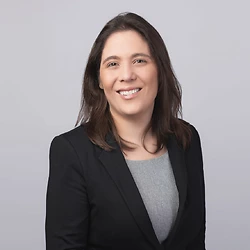Sixth Circuit Enters TCPA Autodialer Fray
The Sixth Circuit recently issued an opinion that broadly defines the term “automatic telephone dialing system” (ATDS or autodialer) under the Telephone Consumer Protection Act (TCPA). The opinion—Allan v. Pennsylvania Higher Education Assistance Agency—deepens the split in appellate jurisprudence on the threshold definition of autodialer, which will be considered next term by the Supreme Court in Duguid v. Facebook.
Earlier, we detailed the arguments behind the split. Below, we provide an update in light of the new Sixth Circuit opinion, which aligns with the expansive reading of the Second and Ninth Circuits.
The Legal Landscape
What constitutes an autodialer is key in determining legal liability under the TCPA. The statute defines the term as: “equipment which has the capacity—(A) to store or produce telephone numbers to be called, using a random or sequential number generator; and (B) to dial such numbers.” In 2015, the FCC issued an incredibly broad interpretation, which the Court of Appeals for the District of Columbia Circuit vacated in 2018.
Since then, and in the absence of a definitive decision from the expert agency, federal courts have inconsistently interpreted ATDS. As the Sixth Circuit describes, “[w]hether autodialer devices [that dial from a stored list of numbers and do not randomly or sequentially generate numbers to dial] are covered by the TCPA is the source of the circuit split.”
Sixth Circuit Deepens the Autodialer Definition Circuit Split
The Sixth Circuit’s case involved debt collection calls from the Pennsylvania Higher Education Assistance Agency (PHEAA) to two individuals (the borrower and the co-signer) regarding their student-loan debt. Both the borrower and the co-signer at one point consented to calls to their cell phones, but they subsequently revoked that consent. Following revocation, PHEAA continued its calls, placing “a total of 353 unconsented-to calls.” PHEAA placed these calls using a system that “creates a calling list based on a stored list of numbers—the numbers are ‘not randomly generated.”
The borrower and co-signer sued PHEAA, claiming that the calls violated the TCPA’s autodialer ban. The district court sided with the plaintiffs, granting their motion for summary judgment and awarding them damages of $176,500. PHEAA appealed to the Sixth Circuit. One of the issues Sixth Circuit considered on appeal was “whether the [] system that PHEAA uses to make debt-collection calls qualifies as an ATDS.”
In in its opinion, the Sixth Circuit acknowledged the circuit split and then focused its analysis on the TCPA’s use of the word “store” in the autodialer definition. As with the prior appellate decisions, the Sixth Circuit analyzed whether the phrase “using a random or sequential number generator” in the TCPA’s definition of autodialer modified (i) both “store” and “produce”, or (ii) only “produce”. A finding of the former would have aligned it with the narrower definition; a finding of the latter would have aligned it with the broader definition set by the Second and Ninth Circuits.
The Sixth Circuit chose the latter course, and explicitly agreed with the Ninth Circuit’s assessment and approach to defining ATDS. The court focused its initial analysis on potential interpretations for the autodialer definition, each of which it concluded were flawed. It rejected holdings by the majority of circuit courts that “random or sequential number generator” modified both “store” and “produce,” reasoning that such an interpretation required a “strained reading” of the word “store.” In particular, it echoed prior criticisms that “[a]s a matter of ordinary usage it’s hard to say that the random number generator is ‘storing’ in any notable way.” Given the perceived flaws in each of the possible interpretations of the autodialer definition, the Sixth Circuit agreed with the Ninth Circuit that “the autodialer definition, viewed in isolation, was ‘ambiguous on its face’” and that an examination of the “structure and context of the autodialer ban as a whole,” was therefore necessary.
While acknowledging the ambiguity of the ATDS definition in the statute, the court focused on the TCPA’s exception for calls “made with the prior express consent of the called party.” It reasoned that since consenting recipients “are known persons whose numbers are stored on a list,” the “entity making the automated call is dialing a stored number—not a number that it randomly generated.” The court further reasoned that the consent exception in the TCPA was “key to defining ATDS,” since it implies that the autodialer ban applies to stored-number systems. Accordingly, the court concluded that the definition of ATDS includes all equipment with the capacity to store numbers—even equipment that does not use a random or sequential number generator.
The Supreme Court’s Ruling Is Expected Next Year
The Supreme Court will have much to consider next term when it reviews the Ninth Circuit’s interpretation of autodialer under the TCPA. The case will be argued and decided before the Supreme Court as part of its October Term 2020, which makes it likely a decision will come in 2021, after the election. It is highly unlikely that the FCC will resolve the issue prior to the Supreme Court’s decision.
The Supreme Court’s decision will have a significant impact on TCPA litigation and the calling landscape. With amicus briefs due this Fall, it is imperative that interested parties weigh in at the Court.



